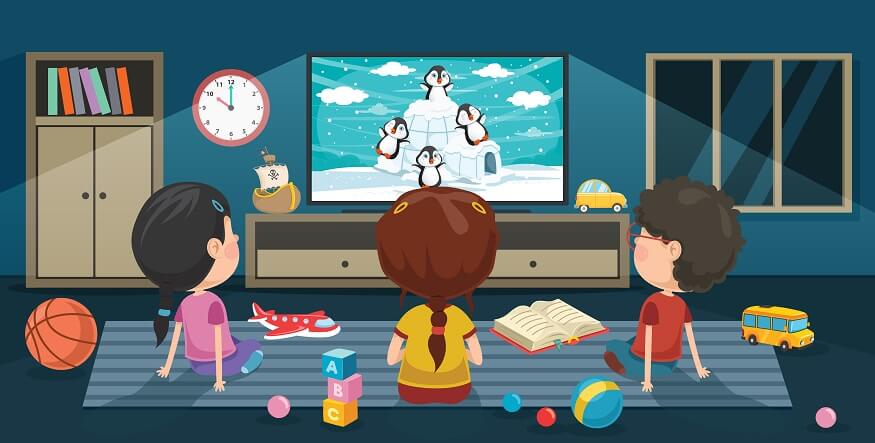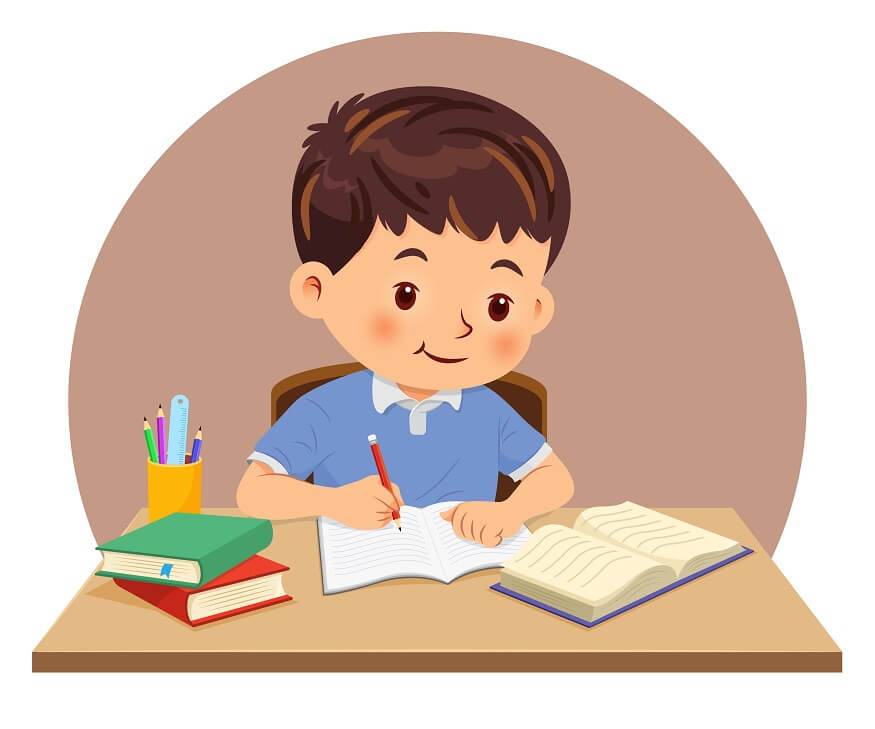Our daily lives have seamlessly included television, which offers us a wealth of pleasure, knowledge, and leisure. But it is important to be aware of the possible drawbacks and impact of television that excessive TV viewing may have, particularly on our academic performance. The intricate connections between watching television and academic achievement are meticulously examined in this essay, shedding light on how our viewing preferences, routines, and habits can significantly affect how well we perform in school. By exploring these facets, we have a deeper comprehension of how the impact of television can impact our academic development and are equipped to make decisions that will help us succeed academically.
Also Read: Building Resilience and Coping Skills in Students
1. The Impact of Television Content on Academic Performance:
a) Our ability to think critically and achieve well in school is significantly influenced by the kinds of television programming we decide to watch. Documentaries, educational television, and learning-focused channels all can broaden our knowledge and improve our academic abilities. Engaging with educational content can sharpen critical thinking abilities, enrich vocabulary, and broaden general knowledge, with a positive impact of TV on students’ academic achievement.
b) On the other hand, a lot of exposure to mindless entertainment, such as reality TV, soap operas, and other non-educational programs, can be detrimental to academic performance. A focus shifts away from academic responsibilities and a reduction in enthusiasm to study can all result from spending too much time on such information. Striking a balance between entertainment and educational content is crucial to ensure that TV viewing supports academic goals rather than hinders them.
2. Harmful Effects of Television on Students with Excessive TV Viewing and Study Habits:
a) The study habits and time management abilities that are crucial for academic performance might also suffer from excessive TV viewing. Long periods of time in front of the TV might cause procrastination and a lack of discipline when it comes to finishing tasks and studying for tests. Students may find themselves forgoing important study time in favour of TV enjoyment, which can lead to subpar academic performance and low results.
b) Furthermore, excessive TV viewing can disrupt sleep patterns, causing fatigue and difficulty concentrating during classes. Late-night binge-watching sessions can lead to insufficient rest, leaving students feeling tired and unable to perform their best academically. It is crucial to establish a healthy balance between TV time and study time, prioritising academic commitments and allocating sufficient time for restorative sleep.
Also Read: 10 Sleep hacks for students to fall asleep faster
3. Strategies for Responsible TV Consumption and Mitigate harmful effects of Television on Students:
A negative impact of tv on students’ academic performance, adopting responsible TV consumption habits can help mitigate these harmful effects of television on students. Here are some strategies to consider:
a) Set limits: Establish a specific time limit for TV viewing each day, ensuring it doesn’t interfere with academic responsibilities. Utilise technology tools or parental controls to effectively enforce these limits.
b) Choose Quality Content: Be selective in the shows and programs you watch, opt for educational and informative content that stimulates learning and intellectual growth.
c) Choose educational content: Select educational programs and channels that offer enriching and informative content. Seek out documentaries, educational series, and channels focused on science, history, or literature. These programs can stimulate intellectual growth and enhance academic knowledge.
d) Create a conducive study environment: Designate a quiet, well-lit study area that is free from distractions such as the TV. Ensure that your study space is organised and equipped with the necessary materials. This helps maintain focus and promotes productive study habits.
e) Practice active viewing: Instead of mindlessly consuming TV content, engage in active viewing. Take notes, ask questions, and discuss the content with others. This helps reinforce the learning experience and makes TV viewing a more interactive and educational activity.
f) Collaborate with peers: Organise study groups or discussion sessions with classmates to review and discuss academic topics. This allows for social interaction and peer learning, reducing the need for excessive TV entertainment.
g) Use TV as a reward: Incorporate TV time as a reward for accomplishing academic goals. After completing a challenging task or reaching a study milestone, allow yourself a limited amount of TV entertainment as a well-deserved break.
h) Exercise: It’s essential for overall well-being and academic achievement to strike a balance between TV time and exercise. Engage in sports, workouts, or other physical pursuits that encourage a healthy lifestyle and support focus and concentration.
i) Monitor Viewing Habits: Keep track of the amount of time spent watching TV and the types of programs being viewed. Awareness of viewing habits helps in identifying any potential negative and harmful effects of television on students and allows for adjustments if needed.
j) Encourage Interactions and Discussion: Use TV shows as a starting point for meaningful discussions. Talk about characters, storylines, and moral lessons portrayed in the shows. This fosters critical thinking, empathy, and communication skills.
k) Prioritise academic commitments: Create a study schedule and allocate dedicated time for academic tasks. Avoid the temptation to watch TV during these designated study periods. Prioritise completing assignments and studying for exams before indulging in TV entertainment.
l) Be Mindful of Screen Time Before Bed: Avoid watching TV or using electronic devices close to bedtime as the blue light emitted by screens can disrupt sleep patterns. Establish a screen-free wind-down routine to promote quality sleep.
m) Create a Family Viewing Plan: Involve the whole family in creating a TV viewing plan that promotes responsible and mindful consumption. Encourage discussions around TV choices, schedule joint activities, and establish TV-free zones or times.
By implementing these strategies, you can ensure responsible TV consumption that enhances learning, encourages critical thinking, and maintains a healthy balance in your child’s life. Remember, moderation and mindful choices are key to reaping the benefits of television while minimising any negative impact of television on behaviour.
Also Read: Effective Tips to Reduce Screen Time
Conclusion:
A significant impact of tv on students’ academic performance and the impact of television on behaviour of students can be observed. By being mindful of our TV viewing habits, content choices, and study routines, we can optimise our academic outcomes. Balancing educational and entertainment content, setting limits, prioritising academic commitments, and creating a conducive study environment is key to ensuring that television supports, rather than hinders, our academic goals. With conscious effort and responsible TV consumption, we can enhance our study habits, improve time management skills, and achieve academic success.
Understanding the potential influence of television on grades empowers us to make informed decisions and establish a harmonious relationship between television and academic pursuits. Let us prioritise our educational journey and view television as a tool for knowledge and personal growth, rather than an obstacle to academic achievement. With dedication and the implementation of these essential strategies, we can set ourselves on a path towards academic excellence and a bright future.
Your dependable educational partner, Euroschool is committed to giving students a thorough and fulfilling educational experience. We enable children to realise their full potential by providing them with skilled teachers, cutting-edge teaching strategies, and a curriculum that promotes both academic performance and personal development. Let’s mould young brains and create a better future together.











